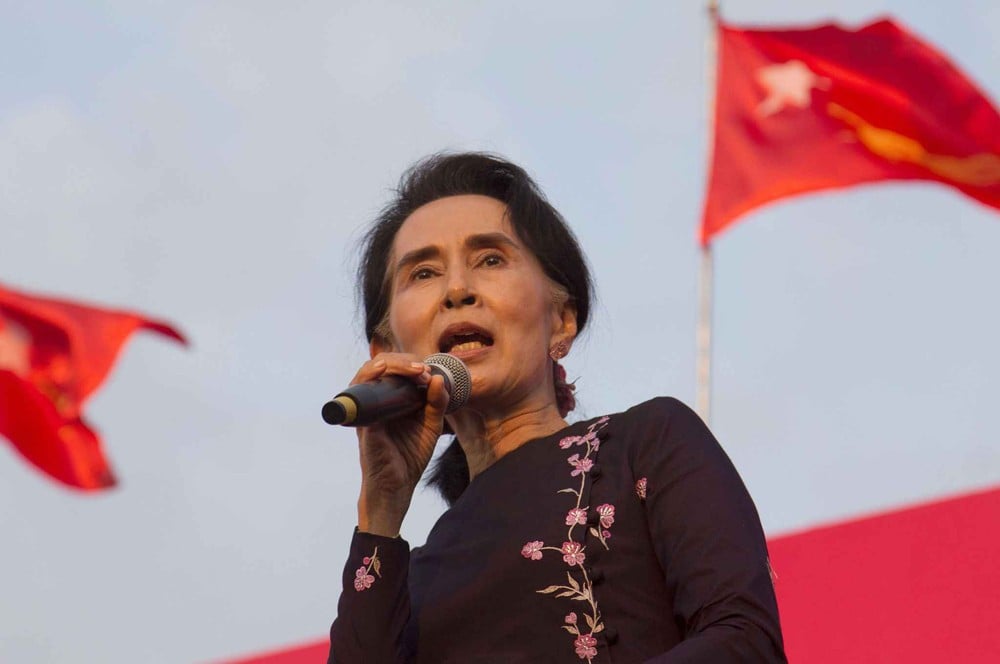
The recent elections may augur well for democracy in Myanmar

From the controlled democracy of the 2010 and 2012 elections, which graduated Aung San Suu Kyi to a pole position within the power structure, Myanmar headed into the 2015 election with a great deal of optimism on November 8. The main opposition party, the National League for Democracy (NLD), has pinned its hopes on carving out more space for itself within the military-initiated controlled democracy.
The party grew out of the unprecedented popular protests erupting against the long-ruling military dictatorship of General Ne Win, who seized power in a military coup in 1962 and sealed off the country from the outside world. The military reacted harshly to the popular uprising, killing hundreds of protestors. The founding influence behind the NLD was Aung San Suu Kyi, the daughter of the Burmese independence leader, Aung San. Within two years, the NLD won the first ever elections, held in 1990, by a huge majority.
The military rulers did not like the outcome of the election, annulled the election results and put Aung San Suu Kyi under house arrest. For the next 20 years, the country was to live under the heavy shadow of the military dictatorship with Aung San Suu Kyi held incommunicado.
Since then Myanmar has become the focus of international attention due to the imprisoned leader’s growing stature as the defender of democratic rights.
Many human rights prizes have followed her way, capped by the Nobel Peace Prize.
As the stature of Aung San Suu Kyi has grown so has the international condemnation of the regime. In these last five years, the whole raft of international economic sanctions have been imposed on the country already reeling from the combined effect of isolation, poverty and multiple ethnic conflicts. However, in 2010, the military leadership, feeling the heat of economic sanction and international censure, introduced a limited form of democracy by installing a pliant civilian front party Union Solidarity and Development Party (USDP).
The 2010 election also saw the victory of the military-backed president, Thein Sein, himself a former general, an overseer of military interests in the new limited democratic set-up. In 2012, the military backed civilian government, phased in another batch of elections where the NLD was permitted to run for a limited number of seats. The party was able to sweep the board by winning 43 of the 45 seats it contested. This set the stage for Mandela-De Clerk style partnership between Aung San Suu Kyi and President Thein Sein. Both acted concertedly to work toward lifting of the economic sanctions and opening up for further democratisation.
This is the background to the decisive elections of 2015. The election is widely seen as a continuing evidence of the Myanmar military’s commitment to restoring full-fledged democracy.
According to the results released by the NLD, the party is on course to win more than 70 per cent of 491 seats of both lower and upper house of the parliament. The turnout is reported to be above 80 per cent from among registered voters of over 33 million, showing immense hunger among the registered population for using up the chance to register their democratic preference.
The NLD released figures are yet to be verified by the Union Election Commission, which has been excruciatingly slow in releasing the results. This has created nervousness among the NLD ranks that see some foul play in the slow release of the results. Most people are still wary of the game plan of the military despite its outward reformism.
Following her unofficial landslide, the leader of the NLD, Aung San Suu Kyi, has hinted at the possibility of working closely with the military while expressing the optimism that election results will be honoured by the long-ruling unelected institutions. More significantly, she has declared her intention to act above the President Thein Sein, who is the military nominee.
This course of action may create tensions with the military leadership not used to sharing or delegating power to the civilians. However, the key to a smooth handover of power will lie in the way Burmese military reacts to the results. The military enjoys an influential say in the future scheme of things by virtue of its guaranteed 25 per cent seats in the parliament, over and above its front political party USPD, its veto over the constitutional changes and its constitutionally guaranteed control of the interior and defence and border ministries.
Moreover, Aung San Suu Kyi cannot become president because of the constitutional restrictions which forbids the spouse of a foreign national to become the president. Her husband was a British academic and her two sons are British citizens. This means she will have to wait in the wings for long, before the constitution can be amended which requires two thirds majority. Pulling this off would be quite difficult in circumstances where the culture of military rule is deeply entrenched and constitutionally fortified.
However, one can speculate that 2015 is different from 1990 when the military was in no mood to concede power. Since 2010 the military has introduced controlled democracy while preserving its own pole position with the system. It would be hard for the military to turn back on its own initiated reform process.
The cost of resorting to such an action would be too costly for the uniformed state manager. In the coming weeks and months, the military would be under the watchful eye of the world, as the full official results are tallied and announced and the NLD is given its long denied crack at power.
The first positive sign has come from the USPD, which has conceded defeat. President Thein Sein has also congratulated Aung San Suu Kyi on her election victory before full disclosure of the results by the Union Election Commission.
This all augurs well for democracy. Yet one week is a long time in politics. No one can predict what may happen between the party-released results and the official results.